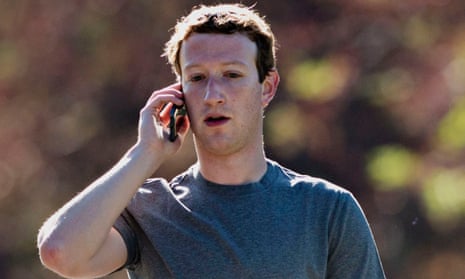Earlier this week, while we were still reeling from cavalier boasts about sexual assault and from watching woman after woman come forward to recount alleged sexual mistreatment at the hands of Donald Trump, Silicon Valley bigwig Peter Thiel donated $1.25m to the candidate.
Far from being blacklisted for supporting Trump, Thiel remains a “part-time partner” at influential tech startup incubator Y Combinator, and he still sits on the boards of Facebook, Palantir, Asana and Zenefits.
Mark Zuckerberg defended Thiel on Wednesday in a leaked internal memo. He wrote his company could not prioritize diversity while shunning supporters of the Republican nominee – arguing that supporting Trump makes a white, libertarian billionaire count as diverse. (Thiel has been a vocal advocate against diversity, which pokes some holes in Zuckerberg’s logic.)
Sam Altman and Paul Graham of Y Combinator both similarly defended Thiel’s role there despite their personal opinions of Trump as an extremely dangerous man who represents an existential threat to American democracy.
Both of these companies’ reasoning for keeping ties to Thiel go something like this: we need a diversity of opinion; we need to talk; we can’t cut off viewpoints – that would set a dangerous precedent.
This is a supremely privileged point of view.
No business or professional consequence would cut off Thiel’s ability to express his viewpoints or his right to free speech. And as Erica Joy has noted, the refrain of “we need to have these conversations” assumes that no talk has been happening. Which may be true if you’re a white man, but not if you’re a woman, or a person of color, or identify as LGBT. (Silicon Valley employees are still overwhelmingly white and male.)
To condone Trump is to condone hatred and exclusion, not political debate. “We can’t create a culture that says it cares about diversity and then excludes almost half the country because they back a political candidate,” Zuckerberg wrote. But this is not about excluding half the country or filtering conservative opinions on Facebook’s platform (which the company has come under fire for doing in the past). Half the country is not backing a political candidate to the tune of $1.25m.
Tech leaders need to take a look at their ties – hard and soft – and re-evaluate where they draw the line. We need more companies making decisions like Project Include, a nonprofit tech industry initiative that cut ties with Y Combinator over Thiel’s donation.
We need the tech industry to hold itself to the same standards for the humans it employs as for product development and engineering.
Facebook’s five core values are: be bold, take risks. Focus on impact. Move fast. Be open. Build social value. Its own News Feed values has a passage reading:
“It’s important to note that while we welcome a multitude of viewpoints, we also believe strongly that people should feel – and be – safe when they use Facebook, and we therefore have Community Standards that define the behavior that we think is out-of-bounds on the platform. We think it’s possible to be inclusive without making Facebook a place where people are subjected to attacks, hate, or other harmful behavior.”
How might they apply these same values not just in the product and business output, but in the way they build their workforce? As of now, tech has become synonymous with hostile and abusive spaces, especially for people of marginalized groups and women. The higher up you go, the more homogenous it becomes.
Things matter and add up. It’s not just hiring people of color, or sponsoring diversity events, or appointing a head of diversity and inclusion. True progress requires a fundamental change in the status quo.
And that’s uncomfortable, especially for the men in power. While there’s definitely work for everyone to do, it starts at the top, with the industry’s elite taking a stand and leading the way forward on inclusive solutions.
We need to choose courage over fear. Silicon Valley needs to stand up and take responsibility to not just do what’s expected, but to go beyond and choose do what’s right. Even if that means losing some connections and funding.
Representation matters both ways: for underrepresented groups to see people who look like them, but also to not see people who openly advocate for misogyny, racism, white supremacy and violence.
